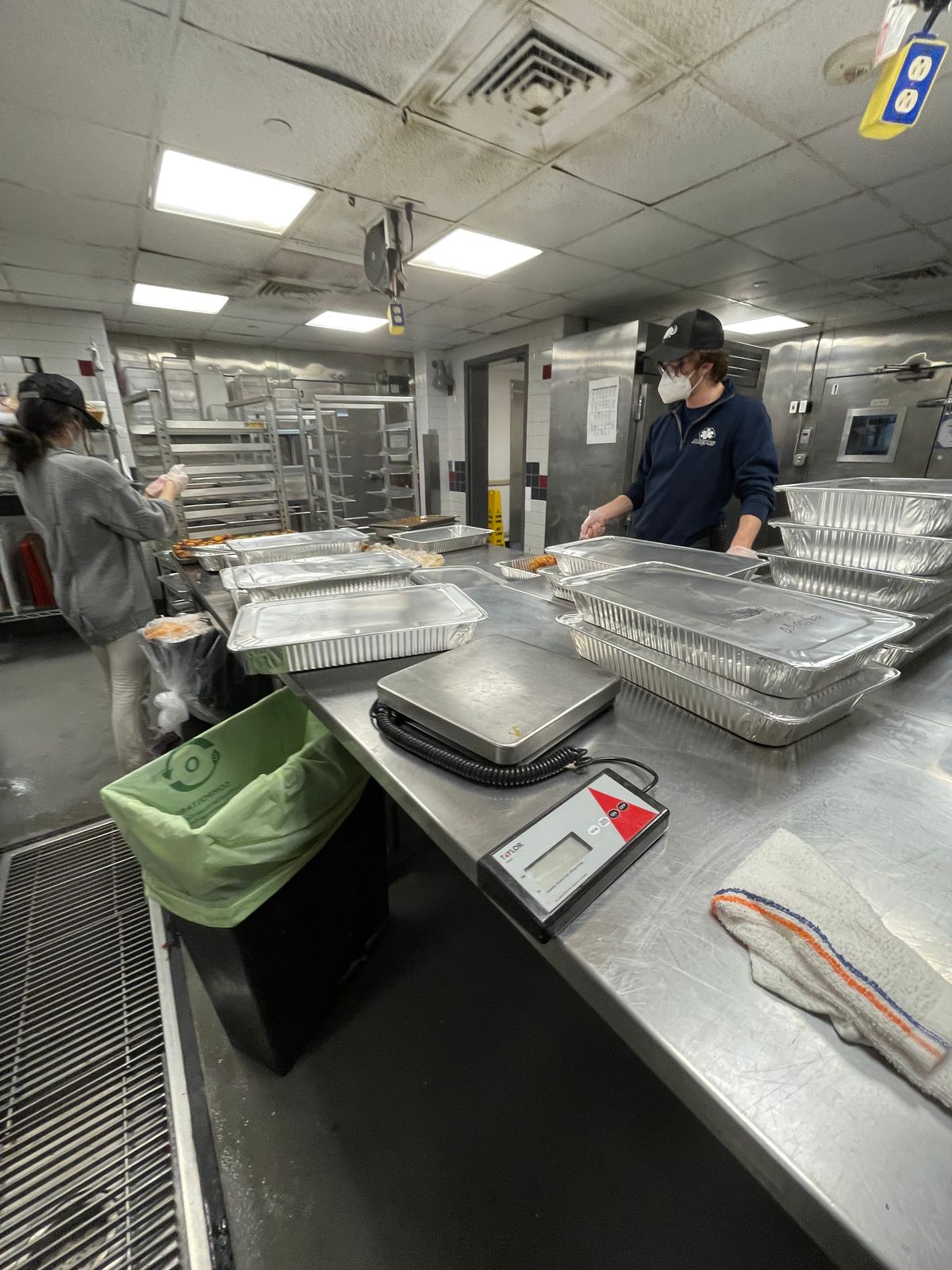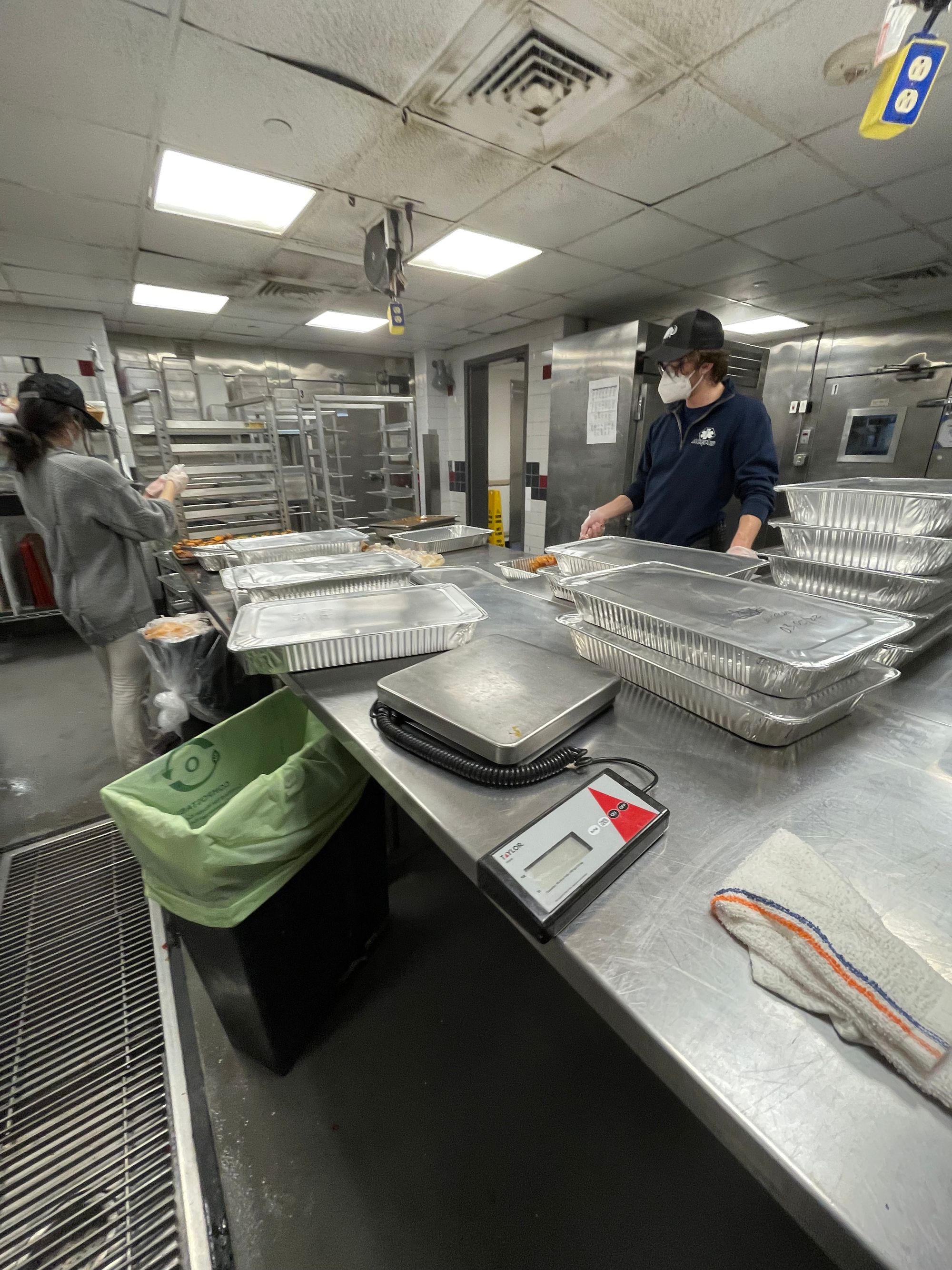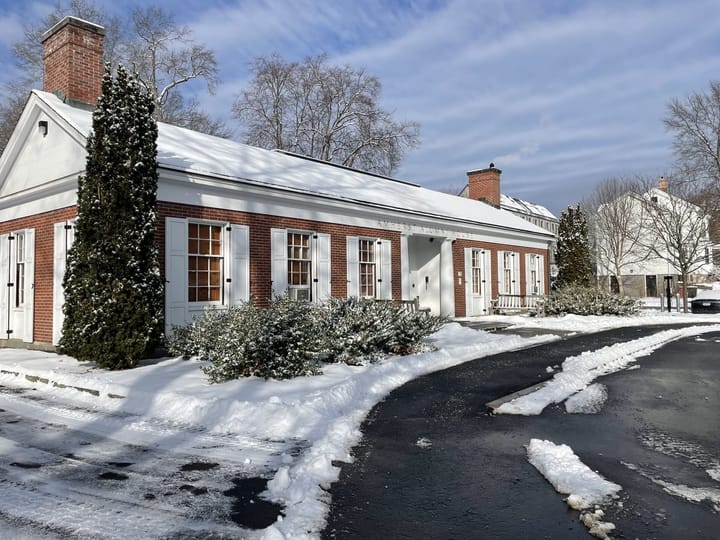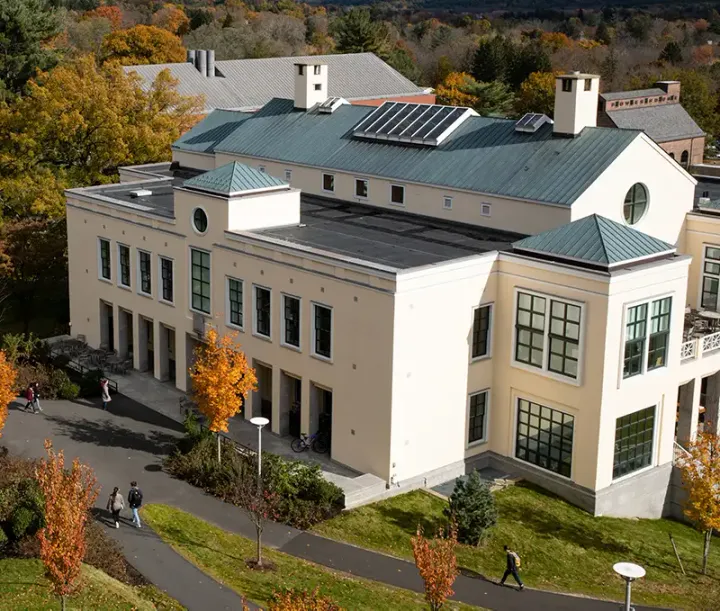Food Justice Alliance Puts Extra Val Food to Use
The Food Justice Alliance instituted a new program relying on student volunteers to reduce food waste. The extra food from Val is donated to Craig’s Doors, a local homeless shelter in the town of Amherst.


On various nights throughout the week, groups of students can now be found in Valentine Dining Hall’s basement in full kitchen gear, transferring leftover food from metal hotel pans to disposable aluminum containers. The students are part of the Food Justice Alliance’s (FJA) new pilot program to reduce food waste and give back to the community by donating extra food from Val to Craig’s Doors, a local homeless shelter in the town of Amherst. Though Dining Services has previously made meal donations during interterms and summers, the FJA is looking to systematize the process and make the donations a regular occurrence.
The new initiative, formulated by the FJA with input from Executive Chef Jamil Asad, relies on student volunteers to repackage leftovers, which staff from Craig’s Doors will pick up each Wednesday and Friday. The system is modeled on UMass’s food recovery program, which also donates to Craig’s Doors. However, unlike at UMass, according to Andrea Muñoz-Ledo ’22, a member of the FJA, Amherst’s process depends more heavily on volunteers “because Val is so short-staffed.”
Prepared food that was not brought to the service area during the meal period is eligible to be donated, said Muñoz-Ledo. According to Director of Dining Services Joe Flueckiger, any food that reaches the service area is automatically composted to ensure food safety.
Dining Services has previously implemented systems for leftover donations. Since the start of the pandemic, Val has sent 75 meals twice a week during interterms and summer sessions to the Amherst Survival Center, a local outreach organization which offers community meals and other related services, said Flueckiger. He added that the large quantity of leftovers from events like Fall Festival and WinterFest has regularly been sent to local community-based organizations.
However, none of these efforts have taken place on a day-to-day basis over the course of an entire year. This was the essential concern that drove the FJA to create the new program, which will make donations more frequent, said Muñoz-Ledo. “Amherst has never had a solid system of donating the waste, and there’s quite a bit of it,” she said.
Beyond donations, reducing food waste has been a consistent goal for Dining Services. According to Flueckiger, under Val’s existing system, data regarding quantities of leftovers is collected following each meal, and is then used to determine ordering for future meals. “We take into account events that are happening on campus and even try to account for weather, when possible,” he said. However, “[i]t’s not an exact science. We have a lot of historical data to draw upon, but the pandemic, to-go containers and a new menu ha[ve], on occasion, made some calculations not 100% perfect.” The FJA considers its role as taking initiative to redirect that inevitable waste.
For those interested in contributing to the effort, Muñoz-Ledo stated that the FJA will be putting links to an email list in the Daily Mammoth. For the rest of the semester, students will be able to sign up for an hour shift on Wednesday or Friday. “People don’t have to commit to do[ing] it weekly, just whenever they have an hour,” said Muñoz-Ledo.
In the words of Catherine Charnoky ’24, a volunteer for the initiative, the “FJA’s food repackaging initiative [is] a simple, easy, and effective way for Amherst students to reduce food waste, redistribute food, decrease hunger, and support the surrounding community.”
Moving forward, Muñoz-Ledo’s hope is that the system will be “consistent and long-lasting.” “We just need student engagement,” she said.





Comments ()